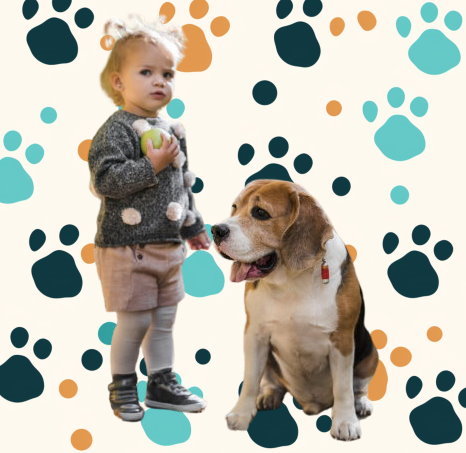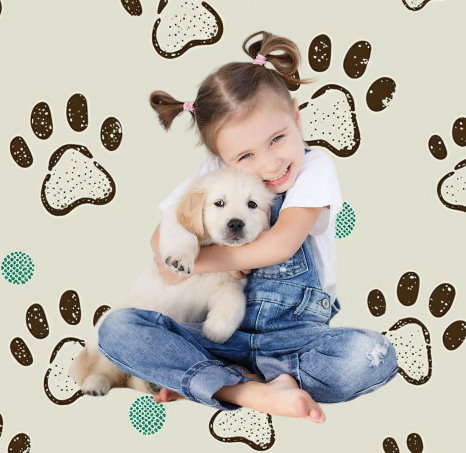Welcome to Dog Training Newbies !
Welcome to Dog Training Newbies !

Bringing a new puppy into your home is an exciting and joyful experience. As you embark on this journey together, it's crucial to lay a solid foundation for your puppy's training. Proper training establishes good behavior, strengthens the bond between you and your furry friend, and sets the stage for a lifetime of happiness together. In this article, we will explore essential puppy training techniques that will help you build a strong foundation and set your pup up for success.
START WITH BASIC COMMANDS
Basic commands are the building blocks of puppy training. Teach your puppy essential commands such as "sit," "stay," "come," and "down." These commands establish communication between you and your puppy and are crucial for their safety and well-being. Use positive reinforcement techniques, such as treats and praise, to reward your puppy for following commands correctly. Consistency and repetition are key to reinforcing these commands and ensuring your puppy understands what is expected of them.
SOCIALIZATION: A KEY COMPONENT
Socialization plays a vital role in a puppy's development. Expose your puppy to different people, animals, sounds, and environments from an early age. Gradually introduce them to new experiences, ensuring positive interactions and experiences. Puppy socialization classes can be valuable, providing structured environments for your pup to learn and interact with other dogs. Early and positive socialization helps your puppy develop confidence, reduces fear and aggression, and promotes good behavior in various situations.


POTTY TRAINING: ESTABLISHING GOOD HABITS
Potty training is an essential aspect of puppy training. Establish a routine for your puppy's bathroom breaks and consistently take them to the designated potty area. Look for signs that your puppy needs to eliminate, such as pacing or sniffing around. Reward your pup with praise and treats when they eliminate in the appropriate spot. Be patient and understanding, as accidents are part of the learning process. Consistency, positive reinforcement, and a regular schedule will help your puppy develop good potty habits.
CRATE TRAINING: PROVIDING SECURITY
Crate training is a valuable tool for both your puppy's safety and comfort. Introduce your puppy to their crate gradually, making it a positive and inviting space. Use treats, toys, and soft bedding to create a cozy environment. Encourage your puppy to enter the crate willingly and reward them for staying inside. Start with short periods and gradually increase the duration. Crate training helps with potty training, prevents destructive behavior when unsupervised, and provides a safe and secure den-like space for your puppy.
BITE INHIBITION: TEACHING GENTLE PLAY
Puppies explore the world through their mouths, which can sometimes result in nipping or biting behaviors. Teaching bite inhibition is crucial to prevent aggressive behavior as your puppy grows. When your puppy nips or bites, let out a high-pitched yelp to mimic the response of a littermate. This communicates to your puppy that their bite was too hard. Redirect their attention to a toy or chew bone, rewarding them for gentle play. Consistency and patience in teaching bite inhibition help your puppy understand appropriate play behavior.
POSITIVE REINFORCEMENT: THE POWER OF REWARDS
Positive reinforcement is a highly effective training technique for puppies. Use rewards such as treats, praise, and playtime to reinforce desirable behaviors. Reward your puppy immediately after they perform the desired action, making a clear association between the behavior and the reward. This positive approach builds trust, motivates your puppy, and encourages them to repeat the desired behaviors. Avoid punishment-based training methods, as they can lead to fear, anxiety, and aggression.
CONSISTENCY AND PATIENCE: KEYS TO SUCCESS
Consistency and patience are crucial elements when training your puppy. Set clear expectations for your puppy's behavior and ensure that everyone in the household follows the same rules. Establish a routine for feeding, playtime, training, and rest. Remember that puppies have short attention spans and may require frequent breaks during training sessions. Celebrate their successes and be understanding when they make mistakes. Consistent training and a patient approach will yield the best results.
Building a strong foundation through proper puppy training is a rewarding investment in your furry friend's future. Start with basic commands, focus on socialization, establish good potty habits, crate train your puppy, teach bite inhibition, utilize positive reinforcement, and maintain consistency and patience throughout the training process. By following these essential training techniques, you will lay the groundwork for a well-behaved, confident, and happy companion. Embrace the journey of puppy training, and enjoy the lifelong bond that you will develop with your furry friend.